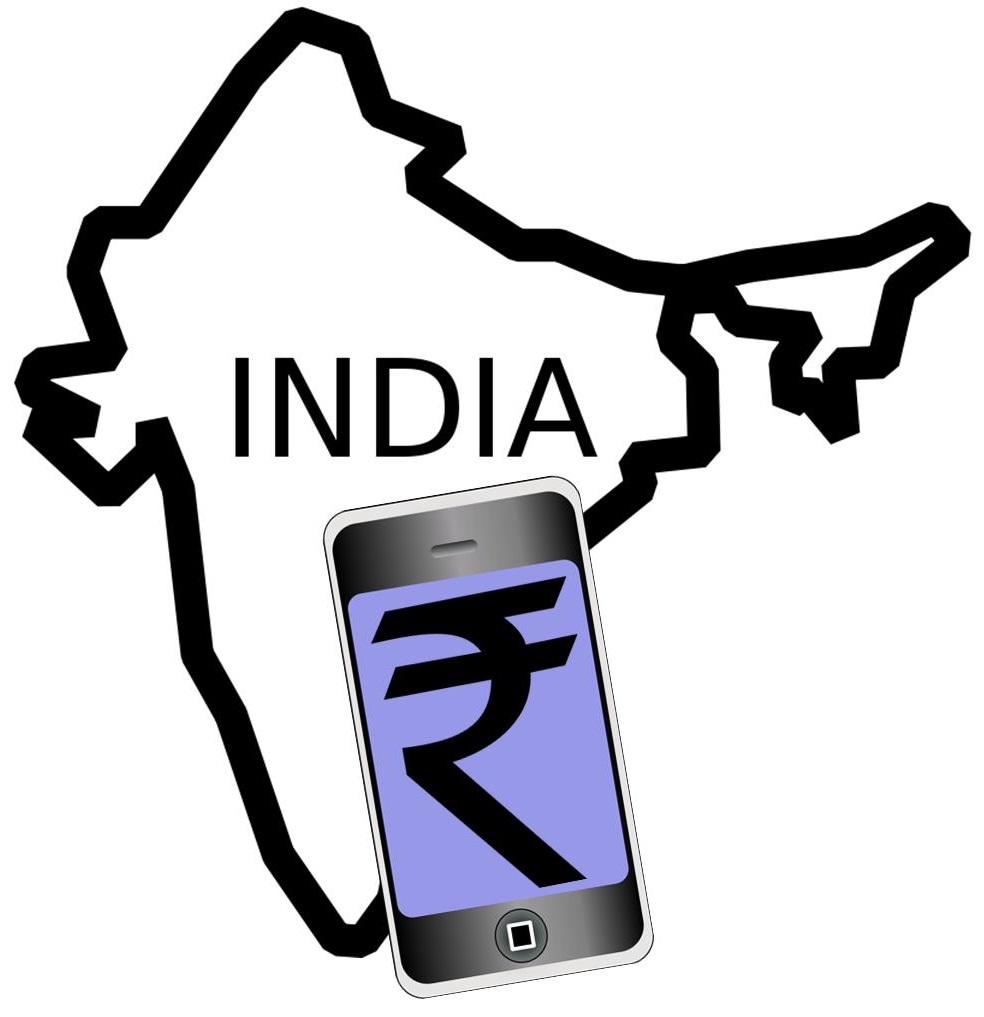The Unified Payments Interface is meant to simplify transactions over smartphones in the country.
The national payments system launched in India this week. The Unified Payments Interface (UPI) is designed to let shoppers complete transactions using mobile phones. So far, the launch includes 21 particpating banks. Customers of those banks can already use the mobile payments services.
Among the banks include ICICI, Axis Bank, Yes Bank as well as eighteen others in India.
With UPI, customers can use the national mobile payments system to both send and receive money. All they need is a smartphone and an account with a participating bank. This system functions by assigning a “virtual identifier” to a user, instead of a person’s actual identity. The purpose is heightened mobile security. There are a number of different functions available by way of the platform. The functions include: bill payments, barcode based in-store purchase transactions, real-time peer to peer (P2P) transactions, delivery payments as well as several others.
The national mobile payments system was initially announced in April and has since been pilot tested.
 The pilot initially consisted of bank employees. Now that the pilot is complete, availability has broadened substantially. Any Indian bank with more than 1,000 pilot customers and a success rate of 80 percent with 5,000 or more transactions can use the UPI mobile apps. They can offer their branded version of UPI mobile payments applications by way of the Google Play store. That way, it can be accessed by the general public in India.
The pilot initially consisted of bank employees. Now that the pilot is complete, availability has broadened substantially. Any Indian bank with more than 1,000 pilot customers and a success rate of 80 percent with 5,000 or more transactions can use the UPI mobile apps. They can offer their branded version of UPI mobile payments applications by way of the Google Play store. That way, it can be accessed by the general public in India.
By using those requirements for launching the mobile apps in the Google Play store, the goal was to incentivize participation in the pilot. That way, there would be a greater capability for improving the application before the nationwide launch. It is possible for existing mobile users to integrate their platforms into the Unified Payments Interface.
Some have predicted that this national mobile payments platform will be very helpful in boosting e-payment adoption in India. That opportunity has the potential to move the country forward in its progress toward financial inclusion. This is important as only just over half of Indians (53 percent) currently have bank accounts.
The popular mobile messaging app will now be giving the social network its user data for ad targeting.
WhatsApp privacy is the catch users have been waiting to find. Mobile app users have wondered why WhatsApp suddenly changed from a premium application to a free one. The cost may not be in currency but will instead be in shared user data.
Facebook owns WhatsApp but has, until now, kept its fingers out of the user data files from the application.
Now, Facebook will be changing the level of WhatsApp privacy available to users. The mobile will share user data with Facebook for ad targeting purposes. Initially, it appeared that while there are certain controls being added to the mobile app’s settings, it isn’t possible to opt out entirely.
However, once a user has accepted the new terms and conditions for use of the app – a requirement for being able to use it – the mobile application automatically adds a new option within the settings for the account. There, users can choose to opt out of the information sharing – a permanent choice that cannot be changed after it has been made. That said, unless the users opt out, the mobile application will start sending some of the data in the account with the parent company.
This massive change was announced in a large update to the WhatsApp privacy policy.
 A recent WhatsApp blog post said “[B]y coordinating more with Facebook, we’ll be able to do things like track basic metrics about how often people use our services and better fight spam on WhatsApp.” Facebook will be better capable of showing more relevant advertising and improved friend suggestions, said the blog post.
A recent WhatsApp blog post said “[B]y coordinating more with Facebook, we’ll be able to do things like track basic metrics about how often people use our services and better fight spam on WhatsApp.” Facebook will be better capable of showing more relevant advertising and improved friend suggestions, said the blog post.
Beyond Facebook itself, WhatsApp will also be sharing user data with the entire “Facebook family of companies.” This may include other Facebook acquisitions and firms, such as Oculus Rift, a virtual reality firm. That said, Facebook also owns Instagram, the photo sharing network, which may mean information will be shared there, too.
Among the user information to be shared under the new WhatsApp privacy policy is even the phone number used for account verification. This has already caused many users to bristle, with displeased comments appearing over Facebook and Twitter. There are certain pieces of information that consumers are more and less comfortable sharing openly. A telephone number does not typically fall within the category of the data they are pleased to see shared with unknown recipients.
 The pilot initially consisted of bank employees. Now that the pilot is complete, availability has broadened substantially. Any Indian bank with more than 1,000 pilot customers and a success rate of 80 percent with 5,000 or more transactions can use the UPI mobile apps. They can offer their branded version of UPI mobile payments applications by way of the Google Play store. That way, it can be accessed by the general public in India.
The pilot initially consisted of bank employees. Now that the pilot is complete, availability has broadened substantially. Any Indian bank with more than 1,000 pilot customers and a success rate of 80 percent with 5,000 or more transactions can use the UPI mobile apps. They can offer their branded version of UPI mobile payments applications by way of the Google Play store. That way, it can be accessed by the general public in India.
 A recent WhatsApp blog post said “[B]y coordinating more with Facebook, we’ll be able to do things like track basic metrics about how often people use our services and better fight spam on WhatsApp.” Facebook will be better capable of showing more relevant advertising and improved friend suggestions, said the blog post.
A recent WhatsApp blog post said “[B]y coordinating more with Facebook, we’ll be able to do things like track basic metrics about how often people use our services and better fight spam on WhatsApp.” Facebook will be better capable of showing more relevant advertising and improved friend suggestions, said the blog post.